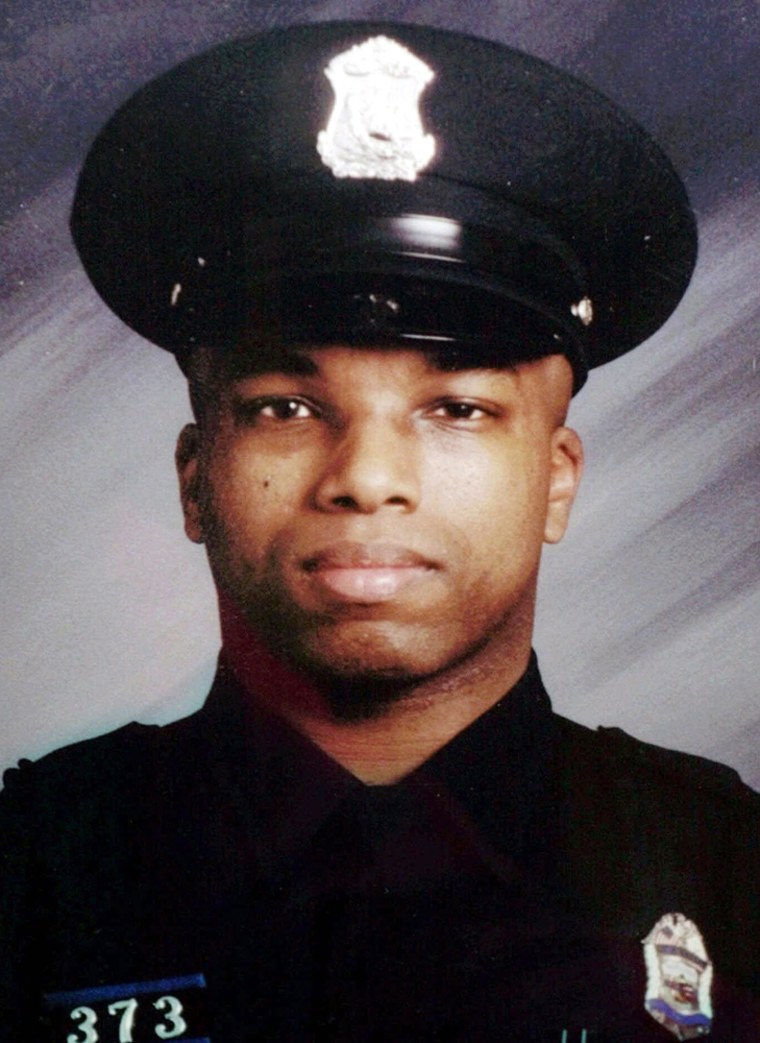An old police tradition of requiring off-duty officers to carry their weapons — “always armed, always on duty” — is being scaled back in police departments nationwide, increasingly being blamed for the deaths of officers shot by colleagues who thought they were criminals.
The policy requires officers to respond to crimes even when they’re not on duty. Supporters also say that letting officers carry their guns off-duty protects them from crooks bent on revenge.
But critics point to the shooting of officers in Providence, R.I., Orlando, Fla., Oakland, Calif. and elsewhere.
The policy is at the center of a $20 million civil rights lawsuit being heard this month in Providence, where Sgt. Cornel Young Jr. was killed in 2000 while he was off duty and trying to break up a fight. He was dressed in baggy jeans, an overcoat and a baseball cap, and carrying a gun.
“Our situation is the extreme example of what can go wrong,” said Sgt. Robert Paniccia, president of the Providence police union.
Young’s mother, Leisa Young, says the rookie officer who shot him was not adequately trained to recognize off-duty or plainclothes officers.
Call 911
The International Association of Chiefs of Police has called “always on duty” policies a costly tradition. The group, which has more than 20,000 members, recommends that off-duty officers who witness a crime call for assistance rather than pulling a weapon.
According to the FBI, 43 police officers have been killed since 1987 by friendly fire. Some were caught in crossfire, or killed by firearms mishaps. A handful, like Young, were mistaken for criminals and shot by fellow officers.
This year, an Orlando, Fla., police officer killed a man who had fired a gun outside the Citrus Bowl. The victim was a plainclothes officer working for the University of Central Florida. In 2001, two uniformed officers shot and killed an undercover detective when he trained his gun on a suspected car thief in Oakland, Calif.
In 1994, an off-duty police officer in New York City shot an undercover transit officer eight times in the chest. The transit officer survived.
In Providence, carrying a gun is now optional for off-duty officers, who are encouraged instead to be good witnesses if they see a crime, said Paniccia. The police union in Washington, D.C., won a similar concession after three off-duty officers were killed in separate incidents, said Officer Gregory Greene, the union’s chairman.
The Los Angeles Police Department allows its officers to carry their weapons off duty, but doesn’t require it, department spokeswoman April Harding said.
David Klinger, a professor of criminology at the University of Missouri-St. Louis, formerly worked as a Los Angeles police officer and said he usually carried a gun off duty. If police officers are properly trained, officers should have the option of carrying a gun for their own protection, he said.
Protocols in place
“I don’t want to be driving through the ghetto without a gun,” he said. “What if some knucklehead I arrested spots me?”
Threatened officers instinctively focus on the perceived threat and tune out other information that could be crucial to split-second decision making, Klinger said. That’s why it’s important to have protocols in place to identify each other, he said.
“If an officer has this tunnel vision, and all he sees is the gun, he may not see the badge hanging on the detective’s chest,” Klinger said.
New York City officers now use standard challenges and responses to prevent friendly fire accidents, said James Fyfe, the department’s former deputy commissioner for training. Fyfe died of cancer this month, shortly after testifying by videotape at the Young trial.
He said every time New York officers confront an armed suspect, they are trained to yell “Police, don’t move!” Off-duty and plainclothes officers are told to respond “I’m on the job!” and to never turn their hand or gun toward a uniformed colleague.
“Unless police officers are trained, they do stupid things on both sides of the coin,” Fyfe said.
